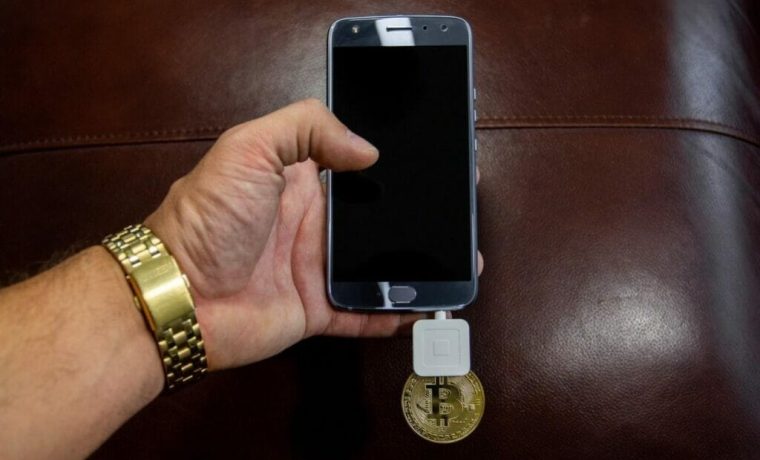Introduction
Digital currency Bitcoin (BTC) is completely decentralized. This opens up more possibilities for the user and brings up exciting new challenges. You can choose from a wide variety of wallets. Finding the right wallet for storing your Bitcoins is of key importance. So, what is an open-source wallet? How to create a secure password: Creating your security phrase (or brain wallet):
Bitcoin (BTC) is a completely decentralized digital currency.
Bitcoin was created to be open-source, peer-to-peer, and transparent to everyone involved in Bitcoin transactions. In other words, it’s not controlled by any central bank or government entity—a similar sentiment to many cryptocurrencies today.
The idea behind using blockchain technology as a means of storing data was first conceived by Satoshi Nakamoto in 2008; he then published his findings online under the name “Bitcoin: A Peer-to-Peer Electronic Cash System” (we’ll get back to this later). Today, thousands upon thousands of people use BTC worldwide—they’re called HODLers because they keep their coins “holding” rather than selling them right away like other investors might do when prices go up or down significantly over short periods (like most stocks).
This opens up more possibilities for the user and brings up exciting new challenges.
The open-source nature of the Bitamp Bitcoin wallet makes it more secure than its closed-source counterparts. This is because anyone can review the code behind an open-source wallet and make sure that there are no backdoors or bugs in the system. In addition, as anybody can contribute to an open-source project, fewer errors are introduced into a program when multiple people work on it simultaneously. Open-source wallets also allow you to run your server for hosting your wallet, meaning that if someone compromises one server, they cannot steal your Bitcoins from another server that has not been compromised (although if you host two servers on different continents or countries then this increases your security).
You can choose from a wide variety of wallets.
Here’s a quick rundown of some of the most popular wallets:
- Hardware wallets are physical devices that store your password, keeping it safe and secure. They can be small and portable, or large and stationary. They’re often used for storing large amounts of Bitcoin.
- Online wallets allow you to access your funds from anywhere in the world with an internet connection. However, this means that someone else holds control over your funds (like an exchange), so they could potentially steal them if they wanted to. It’s important not only that your computer is secure but also that you keep your private keys when using an online wallet–don’t save them on your computer or phone! Instead, write down all necessary information (like passwords) multiple times in multiple places so as not to lose any info when it comes time again later down the road.”
Finding the right wallet for your new needs is key.
If you are new to crypto, you may be wondering how to choose the right wallet for your needs. This can be a difficult decision, but some basic questions will help narrow down your options.
First and foremost, you should consider security as one of the most important factors when choosing a wallet. After all, if your coins are not safe, they likely won’t be worth much at all in the long run! Some common ways of ensuring that wallets are secure include:
- Using two-factor authentication (2FA) features such as Google Authenticator or Authy
- Keeping private keys safe by encrypting them with a password or passphrase
- Backing up their data on paper or other physical mediums that can’t be hacked
What is an open-source wallet?
Open-source wallets allow you to send, receive and store Bitcoin on your computer or mobile device. Open-source wallets are free and can be used on any device. Other advantages of open-source wallets include:
- Easy to use – No need to understand complex cryptographic protocols (like how blockchain works) or learn about all the technical details of Bitcoin software. If you have ever used a website before, then you already know how to use an open-source wallet! This makes it possible for anyone with access to the internet and a smartphone (which has become increasingly common among people in developing countries) can participate in this global economy with ease.
- Secure – No one else has access to your private keys so they never have access to your Bitcoins either! This means that even if someone manages somehow get into your computer (much harder than getting into a bank account), they still wouldn’t be able to steal anything from inside it because these keys are stored locally on just one machine only which means that no one else can get them either unless we’re talking about something like quantum computing which might someday exist but today still isn’t possible yet as far as we know so don’t worry much about this possibility though there will always be ways around everything we do here; just keep reading until next paragraph where I explain what happens when someone steals all my money while I’m sleeping so don’t worry too much now 🙂
How to create a secure password:
Your password should be hard to guess and easy to remember. It is highly recommended to use a password that is long and complex. But you also need to make sure that you can remember it—so don’t use a word from the dictionary!
Don’t use any personal information about yourself or anyone else in your family as part of your password (such as your birthday, address, phone number or anything else that might be easily discovered). This includes things like pet names and nicknames.
Avoid using common words such as “password”, “123456” or “qwerty”. These are easy targets for hackers because they’re known by many people who have weak security awareness. Instead, consider mixing letters with numbers (for example 5h34d) or making up random phrases like “N0w I’m ready!” Don’t write down anything related to Bitcoin, including passwords! Some people keep their passwords written down on paper inside their wallets but this isn’t recommended because wallets can get lost and if that happens then so will any sensitive information contained within them which could lead to identity theft problems later on down
Creating your security phrase (or brain wallet):
The first step in creating a secure password is combining upper- and lowercase letters, numbers, and special characters. You should also avoid using personal information or words that can be easily guessed by others. The best way to create your security phrase (or brain wallet) is by randomly selecting words from the dictionary that are meaningful to you and putting them together in an order that makes sense. For example:
grams pithy dankly muckily
This would be an excellent choice because it is both easy for you to remember and difficult for someone else trying to hack into your account. It may sound complicated at first, but once you get the hang of it, using this method will become second nature.
After reading this post, you will better understand whether an open-source wallet is the right solution!
- Open-source wallets are free.
- Open-source wallets are secure.
- Open-source wallets are easy to use.
Open-source wallets have no transaction fees and you can back up your wallet anywhere you like, such as cloud storage or even on a piece of paper! This means that your Bitcoin will never be lost due to a faulty hard drive, computer crash or even theft if someone gets their hands on it! You can also use open-source wallets to buy things online with Bitcoin (like with any other cryptocurrency).
- The advantages of using open-source Bitcoin wallets:
- No transaction fees because they are open-source software, so they do not profit from user transactions like many other companies that provide similar services through their proprietary apps and websites; anyone who downloads an open-source program can read the code behind it and verify its legitimacy before installing it onto their device; this means no one has access to any information about what type of transactions we’re making – we don’t need to worry about getting hacked into because there’s nothing valuable stored inside our device except for our private keys which keep track of all our Bitcoins; this makes it much safer than other types of apps out there today!
Conclusion
As we’ve seen in this post, there are many options to choose from when it comes to wallets. That said, I hope it’s clear that open-source wallets are a great choice for anyone looking for a secure wallet with no strings attached. They allow you to use your computer as the server, which makes it much harder for hackers or government agencies to compromise your funds. Plus, they have other advantages like being free and open source (meaning others can audit them).
















